Explore Power Pages
In today’s world, websites do more than just provide information. They're an important part of establishing your organization’s identity and a critical component in building loyalty. Organizations create sites to help assist customers in performing tasks, such as managing their account details or providing customers with a support portal that includes self-service options.
Microsoft Power Pages is a platform for creating, hosting, and administering modern external-facing business websites. Power Pages enable both low-code makers and professional developers to rapidly design, configure, and publish websites that function seamlessly across web browsers and devices.
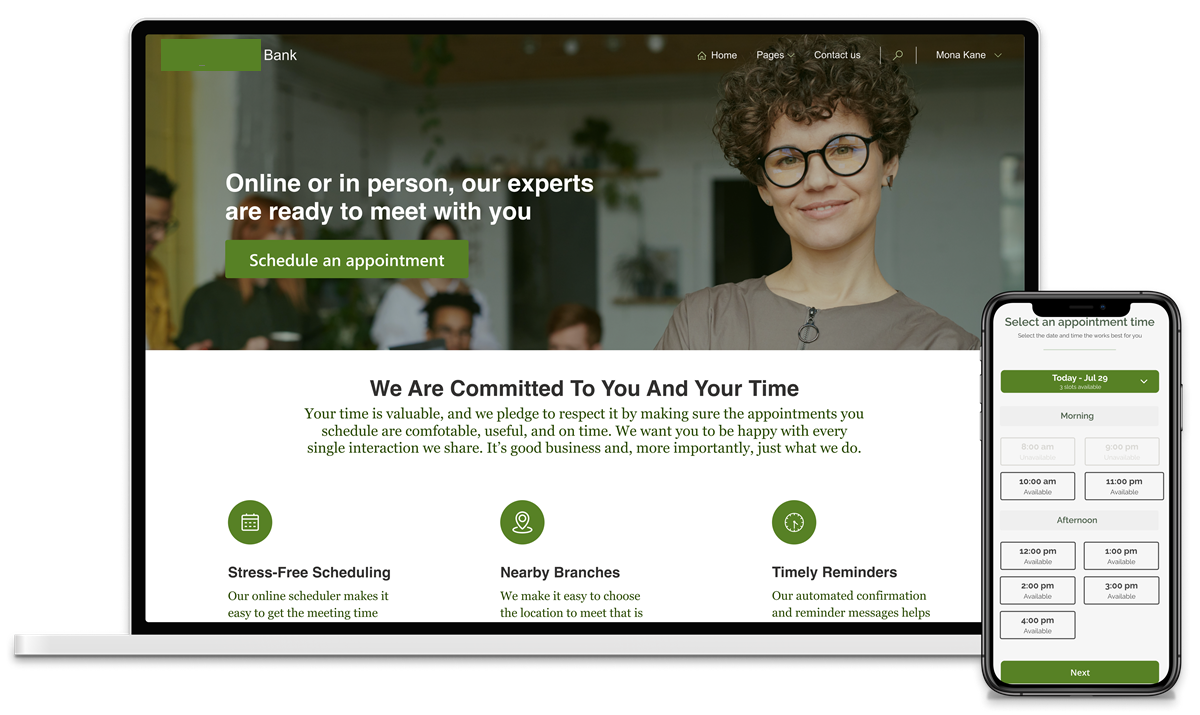
Power Pages provides you with rich customizable templates, a fluid visual experience through a reimagined design studio, and a new integrated learning hub to quickly build sites that suit your unique business needs. The learning hub provides makers with a guided learning experience. That guidance makes it easy to find the correct documentation, tutorials, videos, and guided tutorials to get started and build websites. The guided learning pane opens inside the design studio without covering the canvas where you're editing your site, allowing you to have a side-by-side view of tutorials and learning content. With Power Pages, you can build sites by using your organization's business data stored in Microsoft Dataverse. This same data is what you use for building apps, workflows, intelligent virtual agents, reports, and analytics with other Power Platform components.
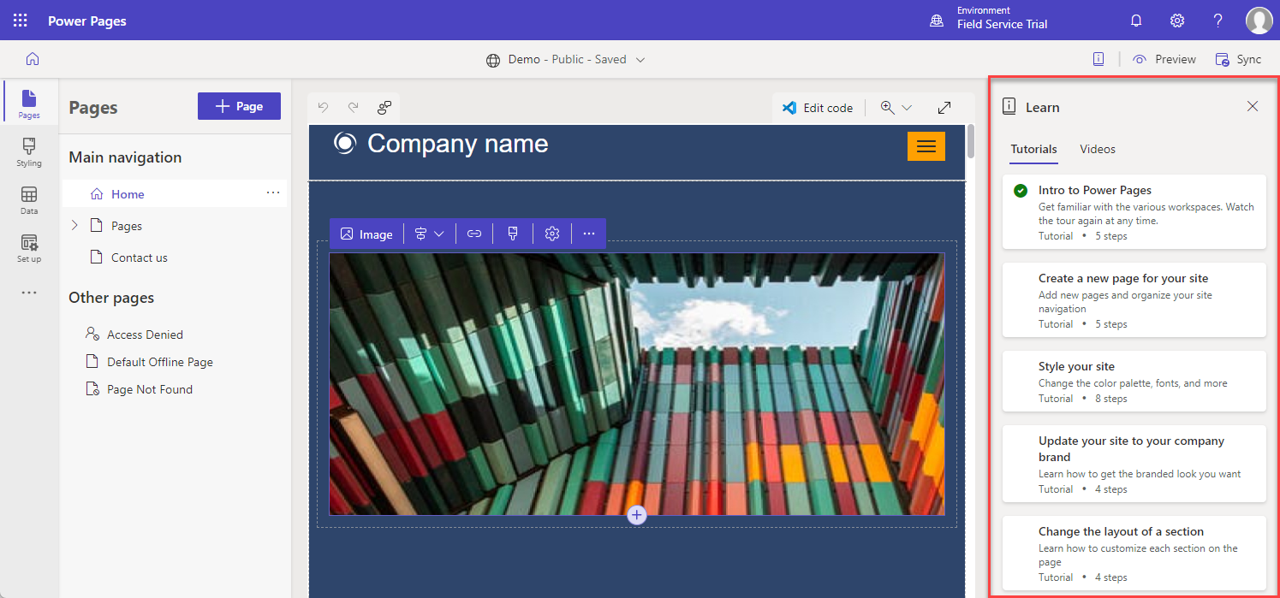
Simplified authoring experience for makers
You want your website to look professional. You want it to be easy to use, and you want it to perform the required tasks. To make site creation easier, makers can quickly create new sites directly from the Power Pages home page by using the default template or choosing existing industry-based starter templates.
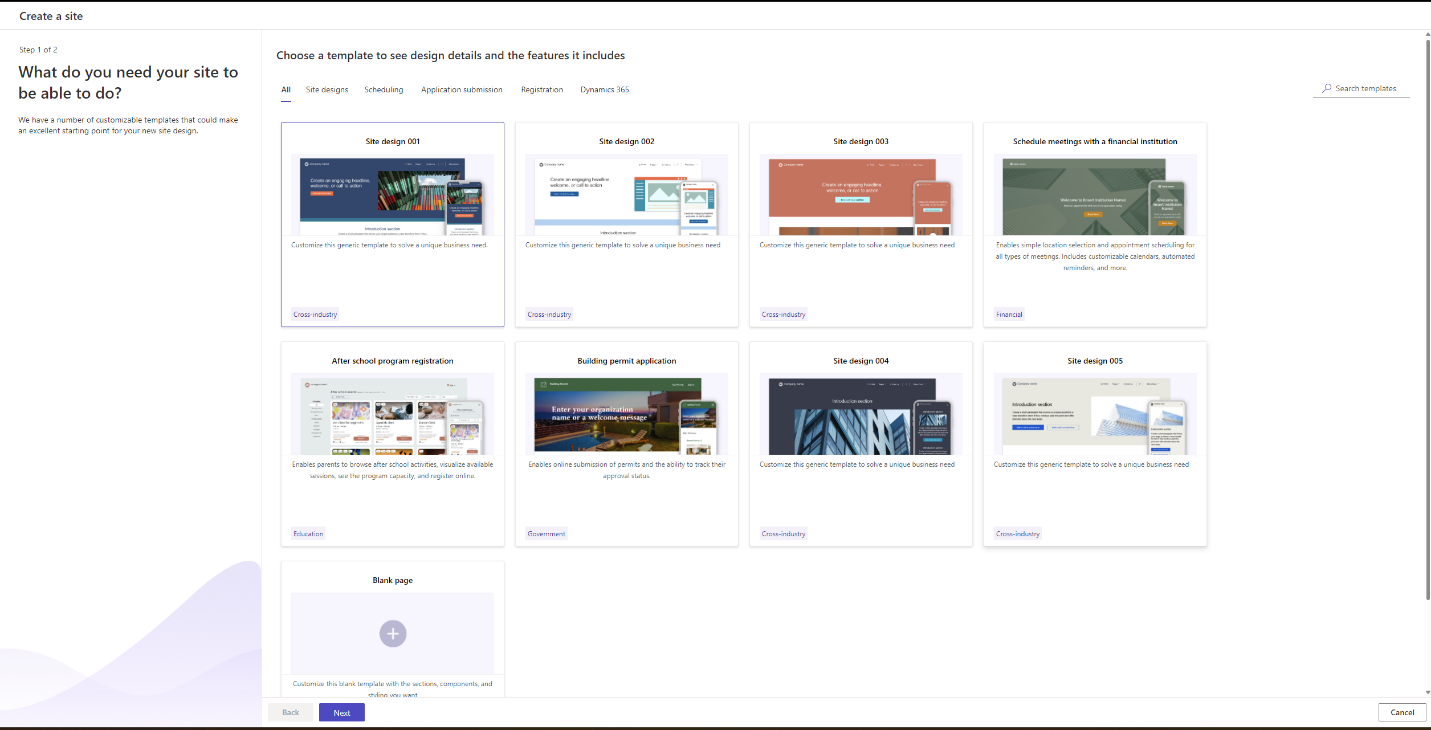
These templates provide you with an excellent starting point that provides a professional look and feel. From there, makers can easily tailor the look and feel of the site and its functionality to meet their specific needs.
Power Pages is based on Bootstrap. Bootstrap provides support for building websites that are responsive, mobile-friendly, and available in various form factors. This capability means that you don't have to build separate versions of a site for different form factors. Sites not only look great while viewing on your computer’s desktop, but they're also optimized to provide the best users experience when viewed on mobile devices.
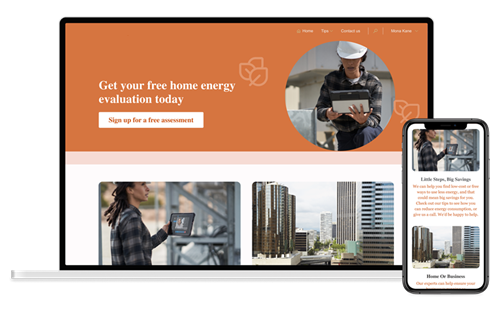
Sometimes elements that are created using the designer don't meet the specific need of an organization. Makers can collaborate with pro developers in fusion teams to extend the functionality using Visual Studio Code and the Power Platform Command-Line Interface (CLI) to create powerful business application websites.
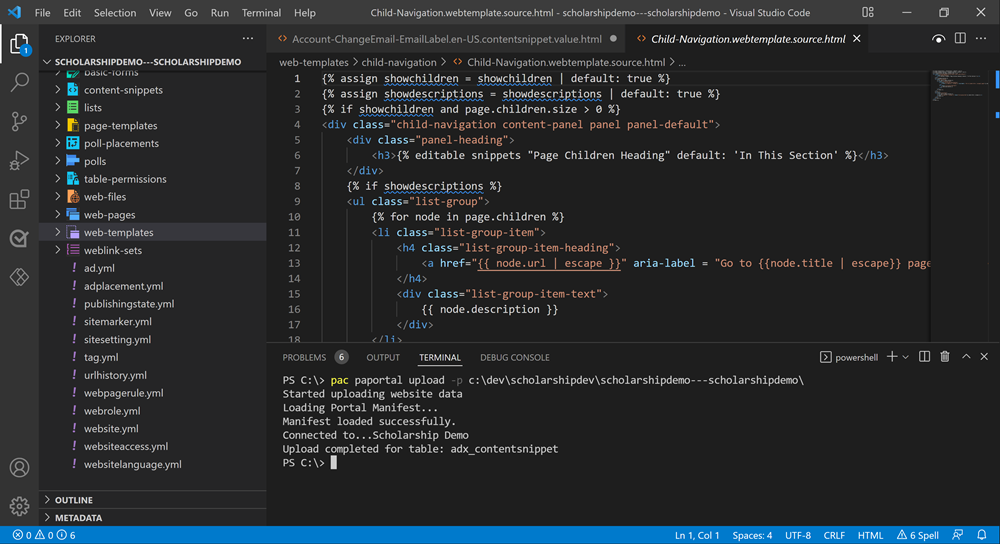
Like all Power Platform products, Power Pages provides deep integration with other Microsoft Power Platform components. Let’s take a closer look at using Power Pages and the other Power Platform components.
Dataverse enables users to securely store and manage data. This is used by business applications and your Power Pages sites. Use model-driven app constructs like forms, views, charts, and dashboards to easily surface Dataverse data.
Power Apps enables anyone to create no-code/low-code custom mobile and web apps to share and collect data and streamline business processes. Using Power Apps to create an app that uses SharePoint to store content is a popular way to quickly build basic intranet sites. Power Pages is ideal for websites focused on external audiences that require more secure access to your business information.
Power Automate simplifies the creation of automated workflows. With Power Pages, you can use Power Automate plug-ins, workflows, and automated cloud flows. Using Power Automate allows you to extend the business logic and interact with data and events coming and going in and out of Dataverse.
Power BI allows anyone to access visually immersive and interactive insights from business data. With Power Pages, integrate with Power BI to access components like reports, dashboards, and tiles. Use the embed capability to surface data that sits outside of Dataverse.